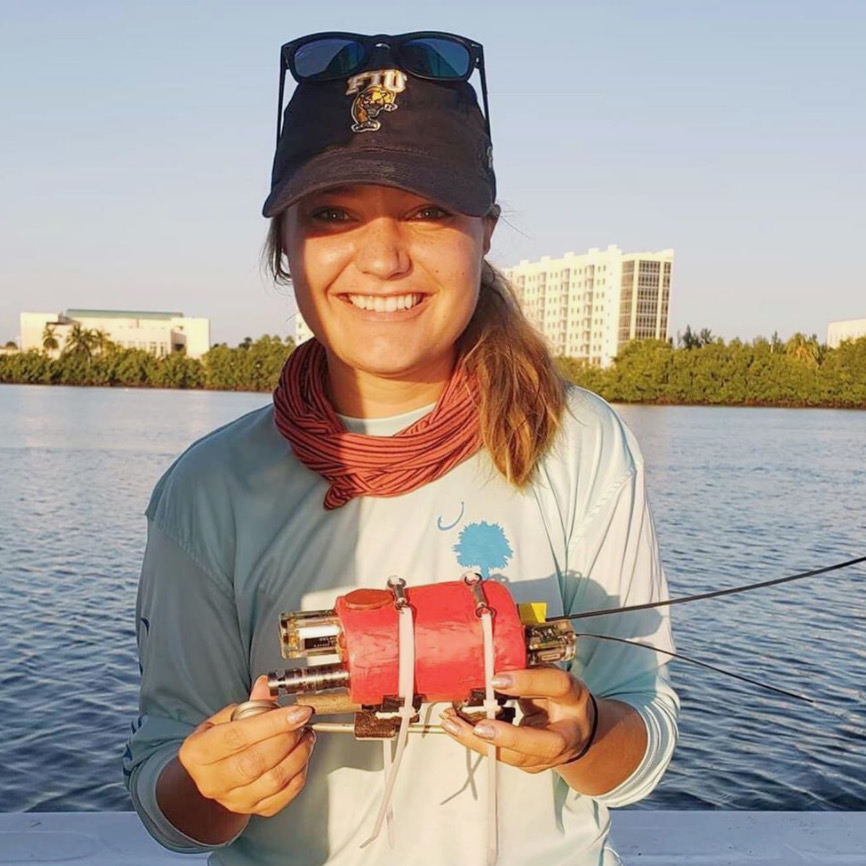Students and teachers from Roosevelt Community Middle School investigated Palm Beach County area marine life with scientists from Florida International University.
EXPEDITION DETAILS
March 4, 2023
Palm Beach County, FL
Sara Casareto
Candace Fields
Sara Schoen
Erin Spencer
Deirdre Stinson
All sharks were fished for, caught, studied and released for research purposes under Florida permits held by Florida International University scientists.
Scientists from Florida International University’s College of Arts, Sciences and Education were joined by students and educators from Roosevelt Community Middle School onboard R/V ANGARI to participate in our hands-on Coastal Ocean Explorers: Sharks program. The participants worked side-by-side with the scientists to learn about and put into practice a variety of methods used to study sharks, including fishing and underwater video surveys within the Lake Worth Lagoon.
The students participated in the assembly, baiting, deployment and retrieval of both the specialized fishing and survey equipment. For fishing, shark research-specific gear called drumlines were deployed. Drumlines allow caught sharks to continue to swim freely after being hooked, minimizing stress on the animal before its workup and release. Additionally, a non-invasive method of studying sharks and other marine life known as baited remote underwater video system (BRUVS) surveys was also employed. BRUVS are used for surveys around the world and consist of a camera and bait box mounted to a metal frame that is placed on the seafloor. Underwater video footage collected via BRUVS can be used to estimate marine life abundance and species diversity, as well as examine the behavior and interactions of marine life. After recovering the BRUVS, the participants reviewed the video footage in R/V ANGARI’s indoor lab, and put into practice their species identification skills, which was made all the more challenging by the limited underwater visibility during the expedition. En route back to the docks, the participants learned more about the research of several of the scientists onboard, including discussing the shark fin trade, and put their knowledge to the test with a fun game of shark science trivia!
This expedition was made possible with funding from the Society for Science’s STEM Action Grant program and supported by the generous donors of ANGARI Foundation.
CHIEF SCIENTIST

Erin Spencer is a science writer, marine ecologist and Ph.D. candidate in Biology at FIU. Her research uses biologgers, or animal-mounted data collecting devices, to record acceleration, speed, depth, etc. that helps us understand great hammerhead shark energy needs and movement patterns. Prior to working in Florida, she received a M.S. in Ecology from the UNC – Chapel Hill where she studied red snapper fishery management and seafood mislabeling, and a B.S. in Ecology from the College of William and Mary where she studied invasive lionfish management. She is a three-time National Geographic Explorer grantee and has given talks to groups of all ages through National Geographic, the World Bank, TEDx, and schools. Erin is an avid writer and published a children’s book called The World of Coral Reefs.



